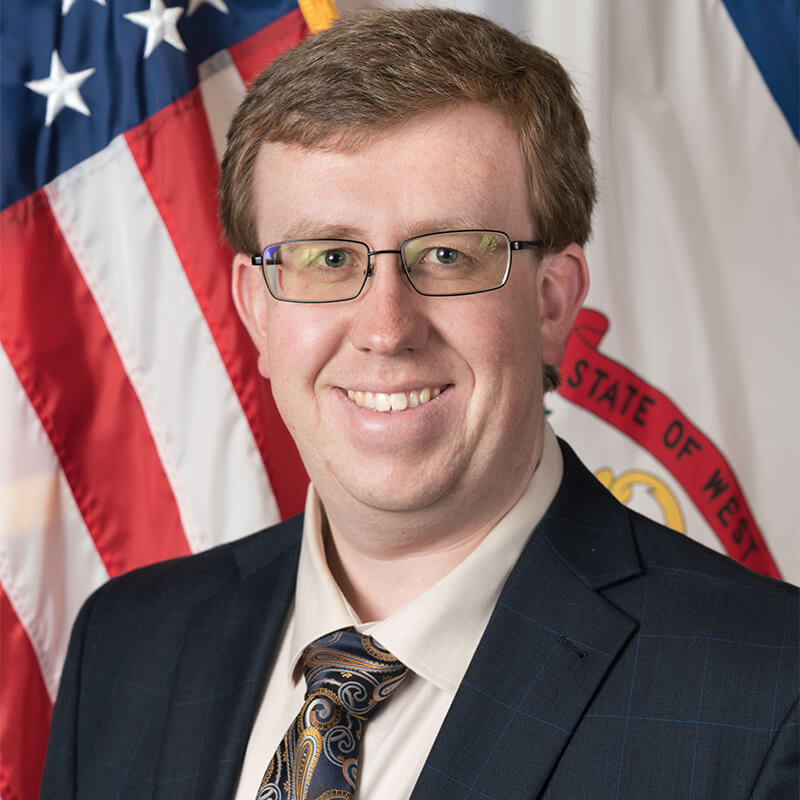ACEEE and partners will establish a nationwide network empowering states and jurisdictions to ensure the next generation of new homes and buildings are built to be more energy efficient, resilient, and healthier.
The American Council for an Energy-Efficiency Economy (ACEEE) is leading the National Energy Codes Collaborative in partnership with the National Association of State Energy Officials, the Urban Sustainability Directors Network, and ASHRAE (formerly known as the American Society of Heating, Refrigerating and Air-Conditioning Engineers). The Collaborative is funded by a $9.6 million grant from the Department of Energy (DOE).
The Collaborative is rooted in partnership with four original member states—Colorado, Louisiana, Michigan, and New Jersey—to support them and other states and localities in implementing updated building energy codes. The Collaborative launches this year with the inclusion of project teams funded under DOE’s Resilient and Efficient Codes Implementation (RECI) program, which covers 26 states, the District of Columbia, and numerous local, regional, and national organizations.
Building energy codes set efficiency requirements for new buildings and some renovations of existing buildings, such as for insulation, windows, or heating and cooling systems. Stronger codes reduce energy use and thus cut utility costs and climate pollution from burning fuels in the buildings and from power plants that provide the buildings with electricity. The codes are adopted and implemented by states or, in some cases, by counties or cities.
DOE estimates that updated energy codes could save utility customers $182 billion and reduce carbon dioxide emissions by 840 million metric tons over 30 years. Adopting the most recent energy codes nationwide would accelerate emissions reductions even further, to almost two billion metric tons over 30 years. The reduction in methane emissions from natural gas would mean an additional 50% reduction in total equivalent greenhouse gas emissions.
The National Energy Codes Collaborative will perform a critical role in meeting these goals by building and convening a robust national energy codes community and as the hub for states receiving federal funding to improve building energy codes. ACEEE and its partners will build in-state capacity through technical assistance and leadership, a newly established network of Energy Code Implementation Fellows, online collaboration platforms, and developing resources for states and jurisdictions. The virtual Introductory Meeting of the Collaborative will be held in late February, and our in-person Kickoff will be held in Sacramento, California, the same week as the 2024 National Energy Codes Conferences.
The five-year, $225 million RECI program was established by the 2021 bipartisan infrastructure law to help jurisdictions update and implement their building energy codes. In addition to the RECI program established by the 2021 infrastructure law, the Inflation Reduction Act (IRA) of 2022 included $1 billion for states and jurisdictions to update their energy codes: $330 million to update to the most recent model energy codes and $670 million to move for zero energy code.
The first $400 million tranche of IRA funding will be distributed by a formula to states and territories, but the deadline for states to notify DOE of their intent to seek this funding is January 31. Last month, DOE announced a competitive funding opportunity for the remaining $530 million of IRA funding open to states, territories, and local governments to support adoption and implementation of building energy codes and performance standards. Concept papers are due February 9, and full applications are due April 30. The announcement of another round of RECI funding is also expected soon. Using the foundation that ACEEE and our partners have built for the Collaborative, we plan to help more states and jurisdictions make the most of the additional federal funding to advance their energy codes and get on a path to net zero new construction. Sign up to receive updates and get involved with the National Energy Codes Collaborative or reach out to Michael Waite for more information.

“Many states and cities are looking to update their building energy codes, and the National Energy Codes Collaborative will offer them the platforms to connect with each other and the technical assistance needed to build capacity and ensure they have the skilled workforce to get it done. We’re going to help them cut costs for families and businesses for decades to come while dramatically reducing greenhouse gas emissions. We are proud to lead this important initiative with our amazing partners and are excited to convene the many others doing important work to advance energy codes across the country.”
– Michael Waite, Director of Codes and Building Standards, ACEEE

“Colorado is proud to have been involved with ACEEE and three of our fellow states in the creation of the National Energy Codes Collaborative from the very beginning. We believe this effort has a great potential to create a collaborative technical assistance and support network for building energy codes across the country -- the likes of which we haven't seen before. As an innovative and progressive leader on building energy codes, Colorado is well-positioned both to share knowledge and best practices with our fellow states, and to learn from resources and expertise that other states and national partners have to offer. This partnership will enable us to continue driving energy efficiency and deep decarbonization through our building energy code work, and we look forward to our participation in this effort moving forward.”
– Adam Berry, Senior Program Manager for Building Codes, Colorado Energy

“ACEEE ranked Louisiana 46th in the 2022 State Energy Efficiency Scorecard. There is a lot to do for Louisiana residents to reap the economic benefits of homes that are resilient and energy efficient. The National Energy Codes Collaborative will help to make new buildings in Louisiana more efficient and lower energy bills. We look forward to collaborating with ACEEE to improve the lives of everyone in Louisiana.”
– Edward O’Brien, Senior Economist, Louisiana State Energy Office

“The Michigan team is looking forward to learning how other states in the collaborative are tackling code implementation, and we’re excited to dig in deeper into any barriers to compliance here in Michigan with a code implementation fellow!”
– Michelle Rogers, Senior Environmental Engineer, Michigan Department of Environment,
Great Lakes, and Energy

“New Jersey Board of Public Utilities (NJBPU) is committed to contributing to and growing the Collaborative by sharing information, resources and lessons learned from its leadership on buildings decarbonization and workforce development initiatives in the State. NJBPU looks forward to the support from the Energy Code Implementation Fellow on effective code implementation, engaging local workforce and advancing equity and environmental justice.”
–Stacy Ho Richardson, Clean Energy Division Deputy Director, New Jersey Board of Public Utilities

“NASEO is excited to continue our commitment to support State and Territory Energy Offices in advancing building energy codes through the new National Energy Codes Collaborative. State Energy Offices are leaders on residential and commercial building energy codes and have been for more than three decades – saving consumers and businesses billions of dollars in energy costs. The collaborative will support state leadership on codes, work with local partners, and exchange of best practices.”
– David Terry, President, National Association of State Energy Officials

“The Urban Sustainability Directors Network is excited to partner on the National Codes Collaborative and amplify lessons, best practices, and products through our network of nearly 300 local governments. The Collaborative answers the call of local and state governments for more staff capacity to support these initiatives through Energy Code Implementation fellows. We look forward to providing them with access to USDN's capacity-building resources and supporting communities in advancing energy codes in jurisdictions across the country as part of an equitable clean energy transition.”
– Brianne Fisher, Applied Practices Director, Urban Sustainability Directors Network

“ASHRAE eagerly embraces this opportunity to further advance energy efficiency practices by partnering in the National Energy Codes Collaborative. We are pleased to spearhead technical advisory groups, guiding collaborative member working groups to deliver continuous technical support to states and jurisdictions. As a leader in energy efficient building standards, we look forward to working with project partners to initiate a sustainable Collaborative, support capacity building, facilitate state and jurisdiction convenings, provide technical assistance and create impactful public resources.”
– Ginger Scoggins, 2023-24 President, ASHRAE
Stay Informed
Sign up here to receive periodic updates and information about the National Energy Codes Collaborative.
